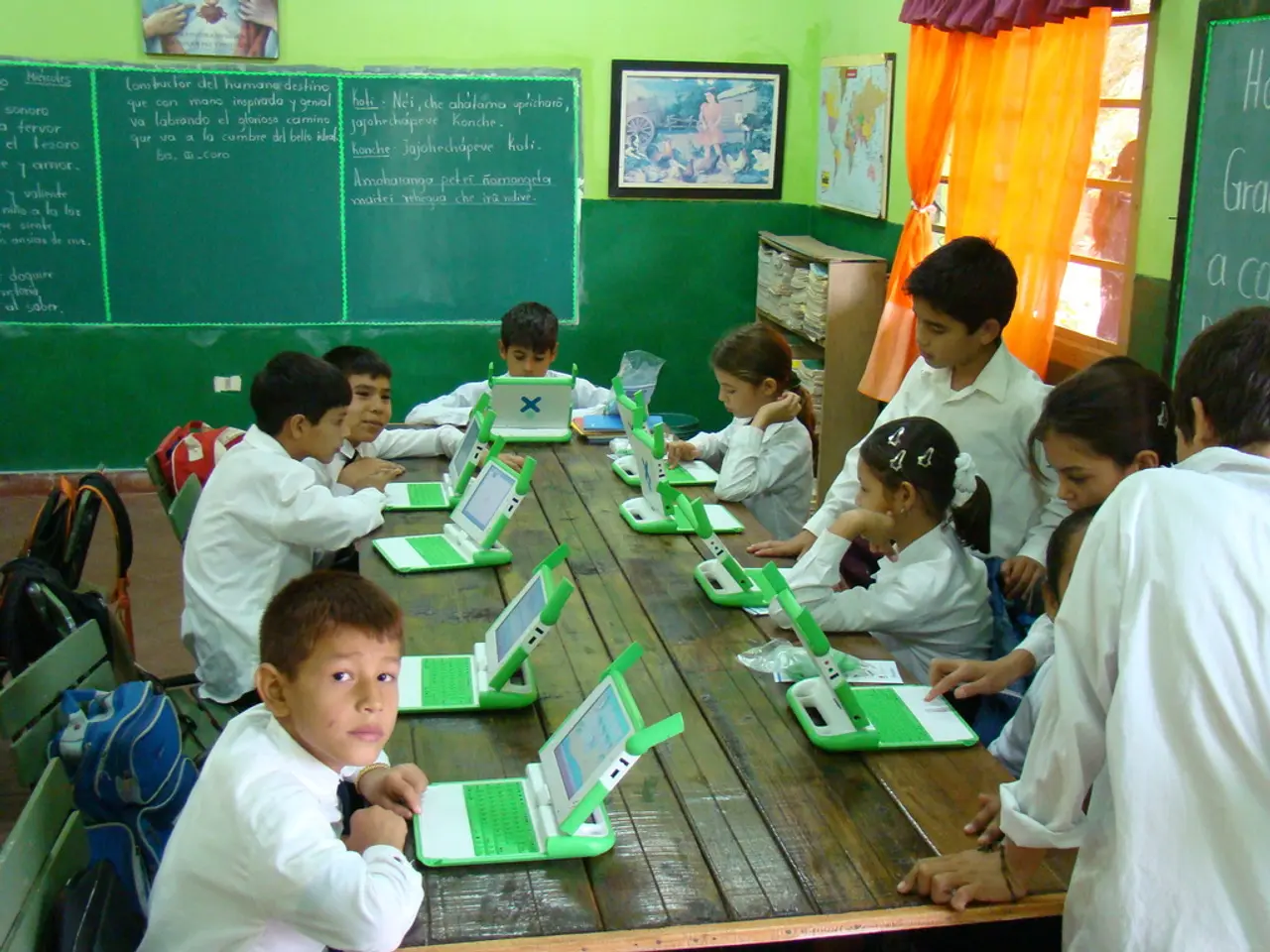Researcher advocates for stringent regulations on children's smartphone usage
Warning Sounded on Excessive Smartphone Use and "Digital Dementia"
Neuroscientist Manfred Spitzer, renowned for his book "Digital Demenz," has raised concerns about the impact of digital media on our health and wellbeing, particularly among young people. He has called for stricter youth protection laws for digital media, similar to those for alcohol.
Spitzer believes that excessive smartphone use can lead to a condition he calls "digital dementia," characterised by cognitive decline such as poor memory and attention deficits. This concept suggests that constant gadget use from an early age can negatively impact brain development and functioning.
In addition to this, research supports a range of health risks linked to excessive smartphone and screen time. These include cognitive impairment, often referred to as "brain rot," which features mental fog, reduced learning, and memory capacity [5]. Mental health issues such as increased anxiety, depression, and emotional instability can also arise, partly due to social media exposure, cyberbullying, and disrupted sleep cycles from late-night screen usage [4].
Moreover, behavioural problems have been observed in youth, such as increased juvenile crime related to digital misconduct and addiction to harmful online content [4]. Overweight children, according to Spitzer, are at an increased risk of becoming overweight adults, which increases the risk of heart attacks. He notes that looking at a smartphone results in less physical activity, leading to weight gain.
Spitzer also criticizes the increasing digitalization of schools, suggesting that weak students are further disadvantaged by this trend. He advises parents to consciously decide against the use of tablets and smartphones by their children.
In summary, Spitzer's perspective underscores serious neurological and cognitive risks from excessive smartphone use, contributing to mental and emotional health challenges as well [2][3][4][5]. It is a timely reminder for us all to consider our digital habits and their potential impact on our wellbeing.
- The neuroscientist, Manfred Spitzer, has linked excessive smartphone use to a condition known as "digital dementia," which is characterized by cognitive decline, including poor memory and attention deficits.
- Research indicates that prolonged smartphone and screen time can lead to various health risks, such as cognitive impairment, mental fog, reduced learning, and memory capacity loss, often referred to as "brain rot."
- Beyond physical health concerns, excessive smartphone use is associated with mental health issues like increased anxiety, depression, and emotional instability, frequently due to factors like social media exposure, cyberbullying, and disrupted sleep cycles.
- Spitzer also advocates for limiting digital devices in education, suggesting that they may disadvantage weaker students and encourages parents to be mindful of their children's smartphone and tablet usage in the context of learning and overall well-being.




